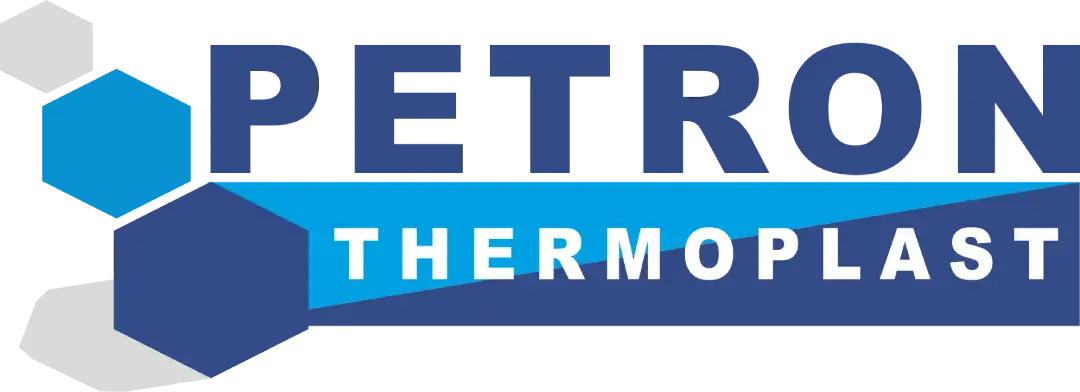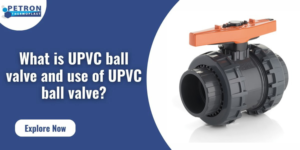When it comes to project planning, the choice of the piping system is critical. You must assess the various sorts of pipes. Metal pipes, such as galvanised iron and steel pipes, were previously utilised. However, because they are prone to corrosion, scaling, and lead poisoning, they have fallen out of favour. UPVC pipes have developed as a cost-effective and long-lasting option for many plumbing projects during the last few decades. UPVC Pipes and Fittings provide several advantages over metal pipes, including reliability, ease of installation, and corrosion resistance.
Over here we discuss features that make UPVC plumbing pipes a better choice than metal pipes:
1. UPVC Pipes are Corrosion-Resistant: One of the biggest disadvantages of using metal pipes is that they degrade due to corrosion, which not only causes leaks but also compromises water quality. Unlike metal plumbing, UPVC pipes do not get corrosion or rusted over time because the material compound does not react with air & water in the same way that metal does. This results in the safe transfer of potable water and a much longer pipe life.
2. Bacterial Growth is Inhibited by UPVC Pipes: Many plumbing applications are concerned about biological pollution. They pollute water, making it unsafe for human consumption. Bacterial growth is not tolerated by our UPVC plumbing pipes and fittings.
3. UPVC Pipes are Sturdy and Long-lasting: UPVC Pipes And Fittings have great tensile and impact strength, making them an excellent plumbing alternative. They are more flexible than metal pipes, making them perfect for compact spaces.
4. Prone to Leaking: Metal pipes are prone to leaking because they corrode readily, rust, and break down that results in leaks. UPVC pipes do not corrode, reducing the possibility of leaking. Even with harsh water, our UPVC pipes do not rust. Joint fittings are connected and sealed using solvent cement to prevent leaks.
5. No Lead Poisoning: Lead poisoning is one of the many safety problems that make metal pipes an unsuitable choice for delivering drinking water. Lead not only creates health concerns in humans but also causes widespread environmental damage. Our UPVC pipes are composed of an environmentally safe, lead-free, non-toxic composition. This makes it appropriate for the delivery of potable water.
6. In The Long Term, UPVC Pipes Save Money: UPVC pipes are lightweight and less difficult to deal with. They are lighter than metal pipes and hence easier to deal with. They are easily cuttable. The installation involves only a few inexpensive tools. Because UPVC pipes do not corrode, they do not need to be serviced on a regular basis. Compared to metal pipes, the total labour and maintenance expenses are cheap. They outlive metal pipes and are hence less expensive options. Our UPVC pipes are built to survive for more than 50 years.
We provide a comprehensive selection of UPVC Pipes And Fittings that are excellent for cold water plumbing applications. Our UPVC pipes are made of high-quality UPVC compounds and are resistant to corrosion and chemical degradation. We also train and service single-family houses, big residential buildings, and commercial structures.
Why Choose UPVC Over Metal?
Drinking water that is clean & safe is crucial for all sorts of properties, whether residential or commercial. Water was once delivered by metal pipes. Metal pipes were not the best solution since they were prone to corrosion and oxidation. Because they are leak-proof, cost-effective & long-lasting, UPVC plumbing pipes have transformed the plumbing business.
Top features of Petron UPVC pipes that you should know about:
1. Lead-free and non-toxic: Prolonged lead exposure can be hazardous to one’s health. As a result, our UPVC pipes are comprised of a non-toxic plastic combination that contains no lead. Because they do not enable bacterial development, our lead-free pipes are safe for delivering drinking water. They are also chemically resistant, which protects the plumbing system from corrosion and chemical damage.
2. High tensile strength and UV resistance: Our UPVC pipes are more durable than conventional plastic and metal pipes due to their high tensile strength. Normal UPVC pipes degrades its quality when they are exposed to sunshine. Our UV-resistant UPVC pipes are built to endure high pressure and UV damage for extended periods of time. They can provide you with service for more than 50 years.
3. UPVC pipes are self-extinguishing and extremely difficult to ignite: When they do catch fire, the flame spread is restricted, making them safe to use. When the source of ignition is withdrawn, the UPVC pipes no longer sustain combustion – they no longer burn.
4. Easy to install: The lightweight of our UPVC pipes makes them cheaper to handle and transport, lowering manpower costs during the installation. As UPVC pipes do not leak or break easily, their operating expenses are considerably reduced.
5. Corrosion Resistance: One of the numerous benefits of UPVC pipes that makes them perfect for conveying potable water is that they are corrosion resistant. The non-toxicity of UPVC pipes means that water quality does not decrease. Our premium UPVC Pipes And Fittings will not rust or react with chemicals. Even when conveying hard water, the smooth inside surface prevents buildup and scaling. This also decreases the possibility of fluid friction.
6. Cost-effective: When it comes to durability, UPVC column pipes clearly outperform traditional metal pipes. Our UPVC column pipes are lightweight, making them easy to carry and less expensive.
Petron Thermoplast provides a comprehensive line of UPVC pipes, fittings, and valves. All UPVC plumbing pipes and fittings are bacterial growth resistant. The non-toxic and abrasion-resistant UPVC pipes are intended to efficiently provide cold water. Petron Thermoplast’s UPVC Pipes and Fittings are made of a non-toxic plastic composite. Our pipes are commonly employed in the delivery of potable water in structures.





Pingback: 15 daagse rondreis senegal gambia
Pingback: ติดเน็ตบ้าน เอไอเอส
Pingback: blu vape
Pingback: som777
Pingback: browse around here
Pingback: live cams
Pingback: buy Ativan Lorazepam
Pingback: Giriş yapmak
Pingback: สล็อต888 วอเลท